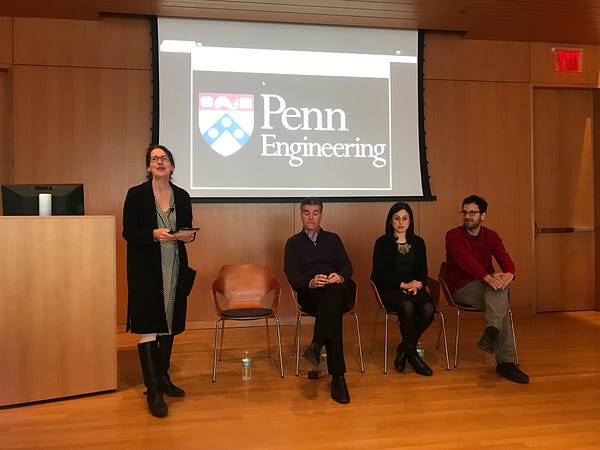The Future of technology: Penn Engineering Teach-In Panels
As new technologies emerge, whether related to health care, artificial intelligence, or other aspects of society, they bring with them new ethical challenges.
The topic of the future of technology was front and center on day three of the Penn Teach-in. The series of free public events convened by the faculty senate aims to bring the academic community together with the broader community to engage in wide-ranging discussions on topics of social importance.

Among the offerings on Tuesday were two panels featuring faculty from the School of Engineering and Applied Science. The first, “The Future of Technology: Engineering Human Health,” was moderated by Kathleen Stebe and included Jennifer Phillips-Cremins, David Issadore, and David Meaney.
The researchers, who all use concepts of bioengineering to study various aspects of how the brain functions, brain trauma, or how to improve access to medical diagnostics, discussed their hopes for how their work could advance technology and health care over the coming decades as well as what sorts of challenges and ethical questions may need to be addressed as this happens.

The second panel, “The Future of Technology: Artificial Intelligence and Society,” was moderated by Susan Davidson and included members of the Warren Center for Network and Data Science, Michael Kearns, Rakesh Vohra and Aaron Roth.
Kearns research interests include topics in machine learning, algorithmic game theory, computational social science and algorithmic trading. Vohra is a leading expert in mechanism design, an area of game theory that brings together economics, engineering, and computer science. Roth’s research focuses on the algorithmic foundations of data privacy, algorithmic fairness, game theory and mechanism design, learning theory, and the intersections of these topics.
Continue reading at Penn Today.
